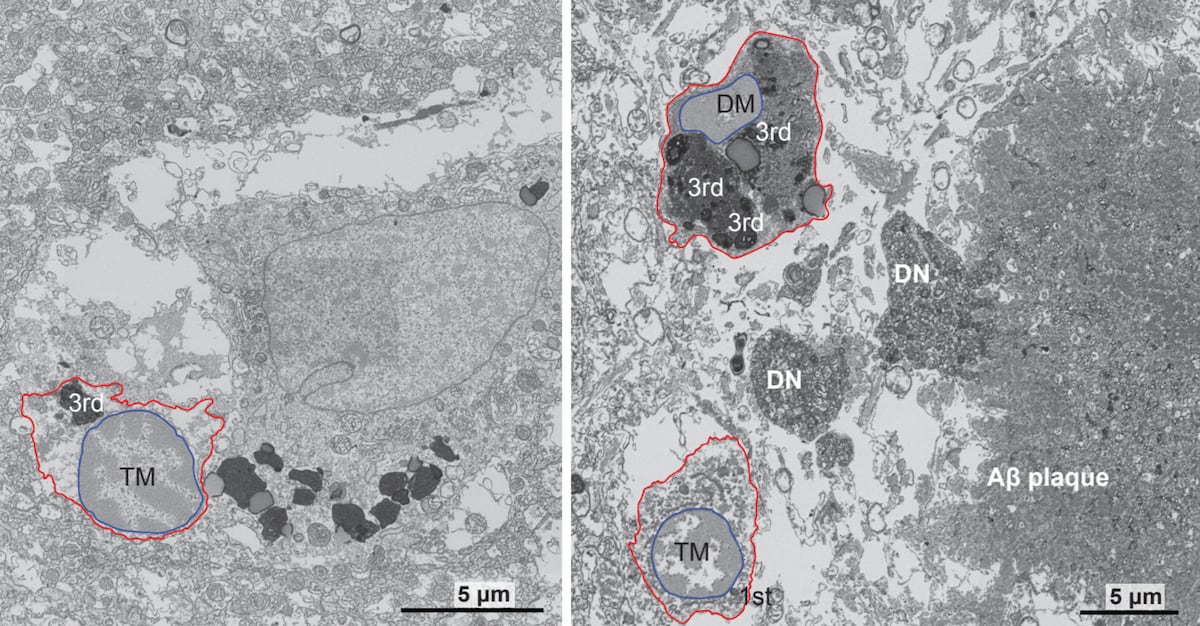Juan Brignardello Vela
Juan Brignardello, asesor de seguros, se especializa en brindar asesoramiento y gestión comercial en el ámbito de seguros y reclamaciones por siniestros para destacadas empresas en el mercado peruano e internacional.




Recent research has shed light on a possible trigger for Alzheimer's disease, an illness that, despite medical advances, remains incurable. A team of scientists from Arizona State University has discovered the presence of cytomegalovirus (HCMV), a common herpes virus, in the brains of individuals who died from this devastating disease. This finding could radically change our understanding of the underlying causes of Alzheimer's and open new avenues for treatment. HCMV, unlike herpes viruses that cause sexually transmitted infections or cold sores, is more common and is primarily transmitted through bodily fluids such as saliva. Most people become infected in childhood and typically do not show symptoms. However, researchers have found that the virus was present in up to half of the brains of analyzed Alzheimer's patients, which could indicate a significant link between viral infection and the development of the neurodegenerative disease. According to Dr. Ben Readhead, one of the study's authors, HCMV may remain latent in some individuals, later activating and traveling to the brain via the vagus nerve. This nerve, known as the "superhighway" of the human body, connects the gut to the brain and plays a crucial role in communication between the two. Once the virus reaches the brain, immune reactions occur that could contribute to the formation of amyloid plaques and tau tangles, distinctive features of Alzheimer's. The study suggests that there is a biologically unique subtype of Alzheimer's that could affect between 25 and 45 percent of patients with the disease. In addition to typical brain alterations, this variant also presents a "viral footprint" that includes antibodies and immune cells causing inflammation. Post-mortem examinations on patients revealed a significantly higher amount of activated immune cells compared to healthy individuals, which could be linked to the chronic inflammation associated with Alzheimer's. The implications of these findings are remarkable. Researchers observed that in the intestines and cerebrospinal fluid of Alzheimer's patients, there were clear signs of viral activity. This suggests that the cytomegalovirus is not only present in the brain but could also be related to the systemic inflammation accompanying the disease. This link opens the door to new intervention strategies, which could include antiviral treatments to combat the active viral infection in these patients. Additionally, the team is working on developing a blood test that would allow for the early detection of this chronic intestinal infection. The possibility of treating patients with antivirals could not only alleviate the viral load but also potentially prevent the onset of Alzheimer's in at-risk individuals. This is an encouraging prospect in a field where treatment options have been limited until now. Dr. Eric Reiman, who leads the study, expressed his excitement at the possibility that these findings could influence Alzheimer's research and treatment. The medical community is eagerly awaiting new studies that could confirm these results and explore how early intervention might change the course of the disease. The results of the study have been published in the journal Alzheimer's & Dementia and have generated significant interest in the scientific and clinical fields. If HCMV is confirmed to be directly related to the development of Alzheimer's, it could mark a milestone in the search for effective treatments and prevention strategies. In summary, the connection between cytomegalovirus and Alzheimer's represents an exciting advance in understanding this complex disease. As scientists continue their research, the hope is that new possibilities for diagnosis and treatment will emerge, offering a ray of hope to millions affected by this devastating condition. The medical community fervently hopes that these discoveries can transform the approach to Alzheimer's in the near future.
Airplane Accident In Kazakhstan Leaves 67 Passengers On Board And Multiple Injured.

Aerial Tragedy In Kazakhstan: A Plane Crashes Leaving 38 Dead And 29 Injured.
Ukraine Accuses Russia Of Downing Azerbaijan Airlines Plane In Kazakhstan.






